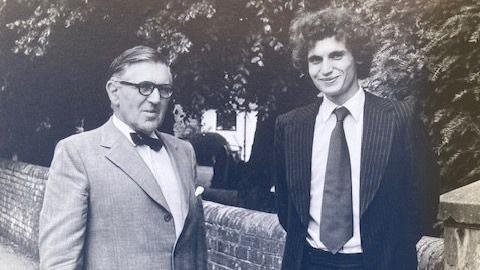D-Day veteran dies aged 104
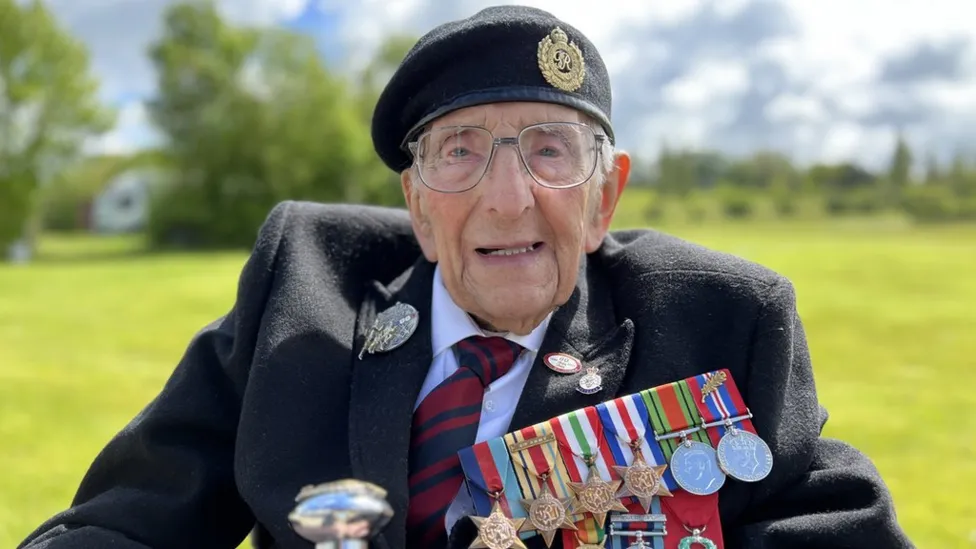
Don Sheppard said he could never forget what he saw during World War Two
- Published
A World War Two veteran who took part in D-Day has died, aged 104.
Donald "Don" Sheppard, from Basildon, landed on Juno Beach on 6 June 1944 as a Royal Engineer.
Some 156,000 British, American and Canadian troops launched from the sea and air on to French soil in one of the most successful military operations in history.
In June he received a police escort to attend a special service marking the 80th anniversary of D-Day at the Living Memorial at Rettendon, near Chelmsford.
The British Normandy Memorial account posted on X, external: "We are saddened to hear of the death of 104-year-old D-Day veteran Donald Sheppard.
"Donald attended the virtual opening of the Memorial in 2021 & features in the Winston Churchill Centre Royal British Legion exhibition.
"Thinking of Donald's wife Sandra & family. Rest in Peace Don."
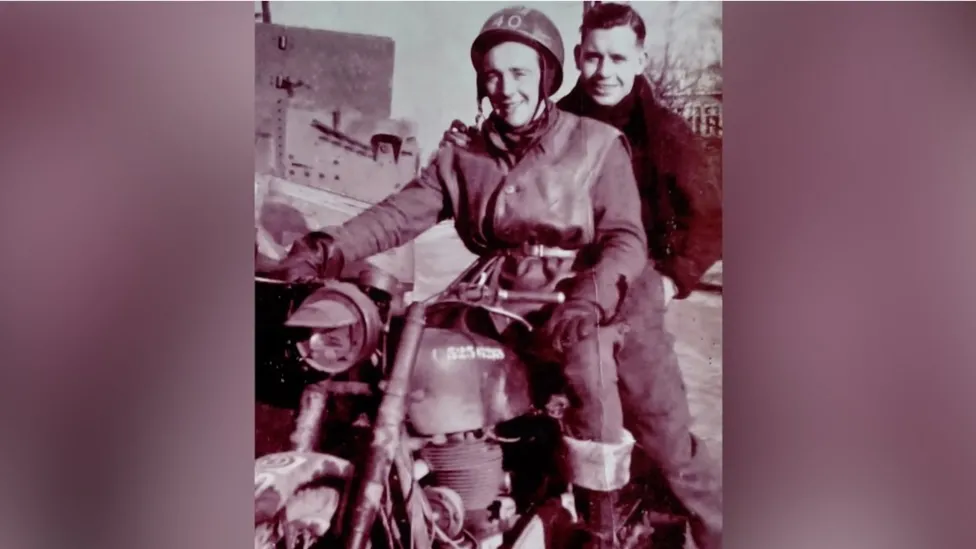
Don Sheppard, who served with the Royal Engineers, rode motorbikes during World War Two
Recalling his landing at Juno beach, Mr Sheppard described D-Day to the PA News agency in 2019 as a "waste of life" but recognised the landings as being "so important".
He said: "I know we had to defend ourselves... but young guys like me 20, 21, who never lasted five minutes, some of them got killed before they got off the boat.
"Tragic, absolutely."
When he arrived at the beach on the afternoon of 6 June 1944, Mr Sheppard said the Germans had "really got the distance and shells were coming over like rain", with battleships also firing over their heads.
"We lost quite a few guys," he said. "We (the survivors) were lucky really."
After breaking through Nazi lines in the August, he continued through to Belgium, the Netherlands and eventually Germany - including to the Bergen-Belsen concentration camp.
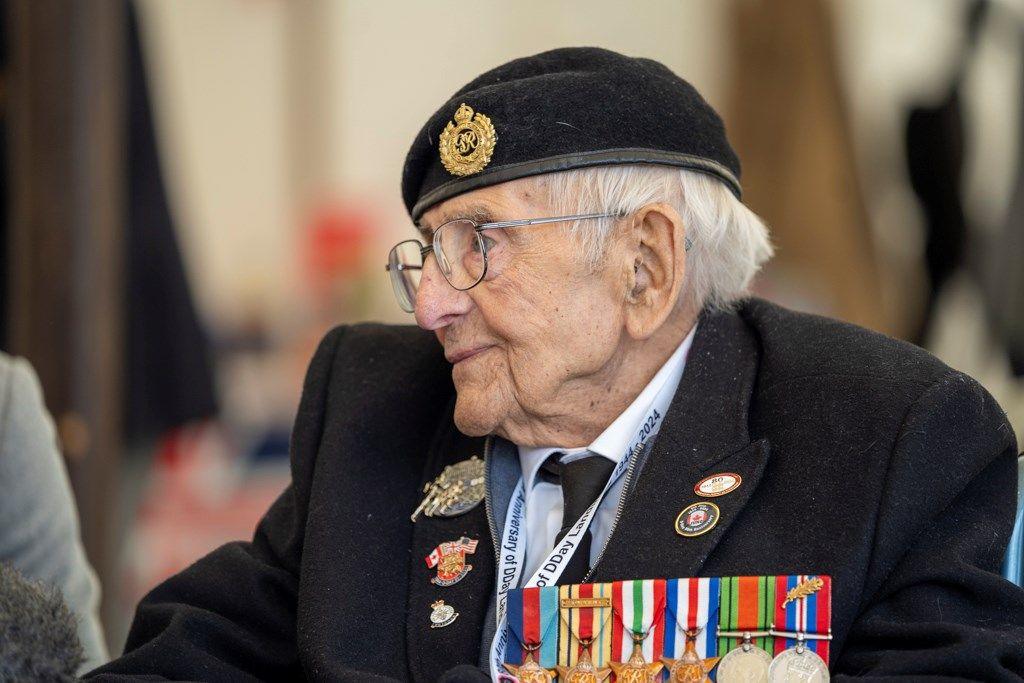
In June he attended a special service at the Living Memorial at Rettendon
Speaking of his experience, Mr Sheppard said: "I shall never forget that for the rest of my life. How one human could do that to another."
The only wound he received during the war was a cut to his leg as he took cover in a ditch as German bombs fell.
But after medical tests and scans some seven decades later, it was discovered he had a sliver of shrapnel sitting in his lung.
Mr Sheppard said the piece of metal had never caused any health problems.
Get in touch
Do you have a story suggestion for Essex?
Follow Essex news on BBC Sounds, Facebook, external, Instagram, external and X, external.
Related topics
- Published22 April 2024
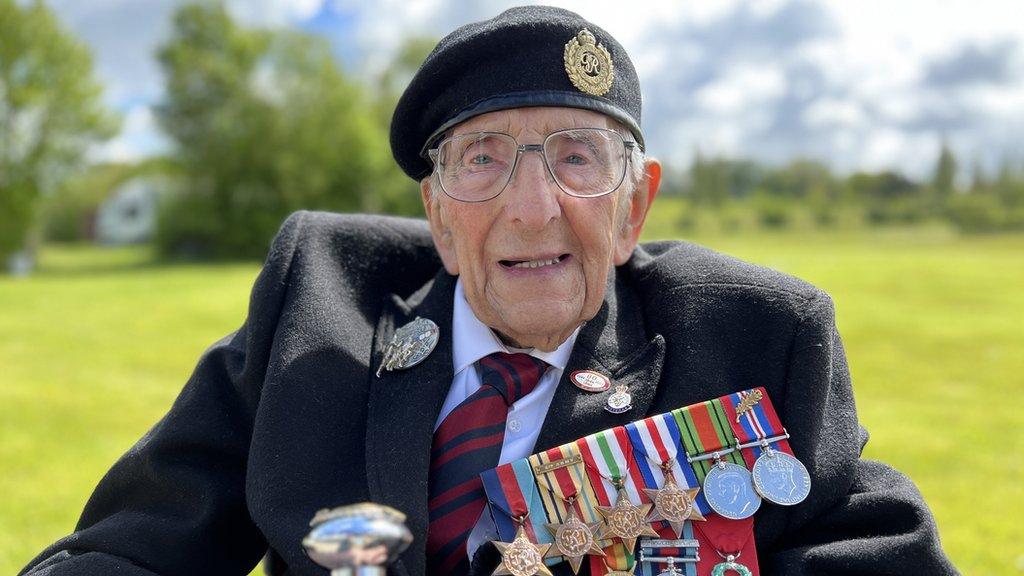
- Published7 June 2024
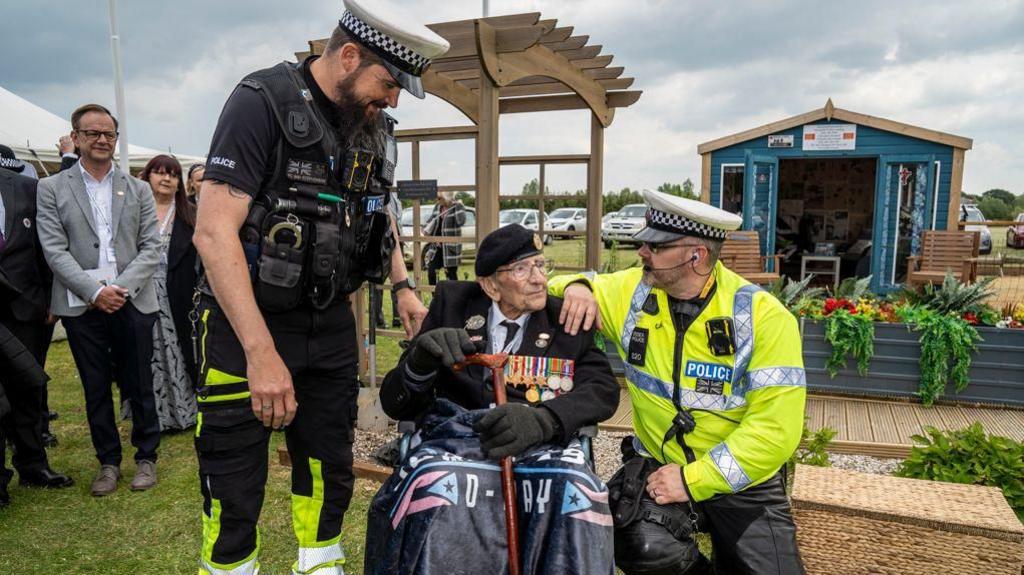
- Published6 June 2024
